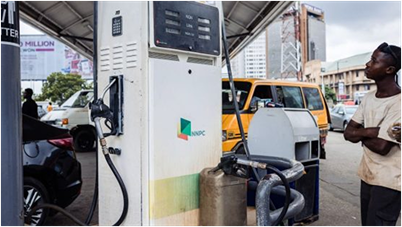In July 2024, the average retail price of consumers’ paid automotive petrol oil (diesel) dropped by 5.71%, from N1462.98 in June 2024 to N1379.48 in July 2024, according per the National Bureau of Statistics (NBS) diesel price watch.
The average price did, however, rise by 73.63% year over year, from N794.48 per litre in July 2023 to N1379.48 per litre in July 2024.
When state prices were examined, Taraba State (N1721.79), Borno State (N1694.17), and Bauchi State (N1619.54) had the highest average diesel prices in July 2024.
On the other hand, Osun State (N1246.82), Kano State (N1211.11), and Kogi State (N1186.31) had the lowest average prices.
When it came to zonal representation, the Southwest Zone had the lowest average price (N1266.57) among the other zones, while the Northeast Zone had the highest average price (N1600.85).
What to note
Nigeria is one of the continent’s top producers of crude oil, but it still depends mostly on imported refined goods like petrol, gasoline, and aviation fuel.
Because of this dependence, the prices of these commodities are subject to swings in international markets and global trade.
Despite having three refineries, Nigeria has not been able to refine any crude oil for decades.
It is anticipated that the opening of the Dangote refinery, which has been dubbed a “game changer” for the sector, will have a positive impact on petroleum prices, particularly those of PMS and diesel.
The refinery started selling its first batch of diesel to regional distributors in April for as little as N940 per litre. But once the Naira continued to decline in value, the price of diesel increased to N1,200 per litre internationally.
There is the general expectation that Nigeria will gain from lower diesel and petrol costs as the market steadies and the Dangote plant operates at maximum capacity. Regulators, however, have been closely monitoring the Dangote refinery due to concerns about both its output quality and capacity.
Steps to lower the cost of diesel
To contain prices, the federal government authorized in October to remove Value Added Tax (VAT) on diesel imports for six months.
Although the injunction expired in April 2024, the federal government has not released any additional information regarding it.
But earlier, Taiwo Oyedele, the Chairman of the Committee on Fiscal Policy and Tax Reforms, had said that the federal government had already written an extension memo and was just awaiting clearance.
In addition, Wale Edun, the minister of finance, had said that additional duty waivers will be granted in the upcoming weeks as a component of the proposed inflation reduction act.



